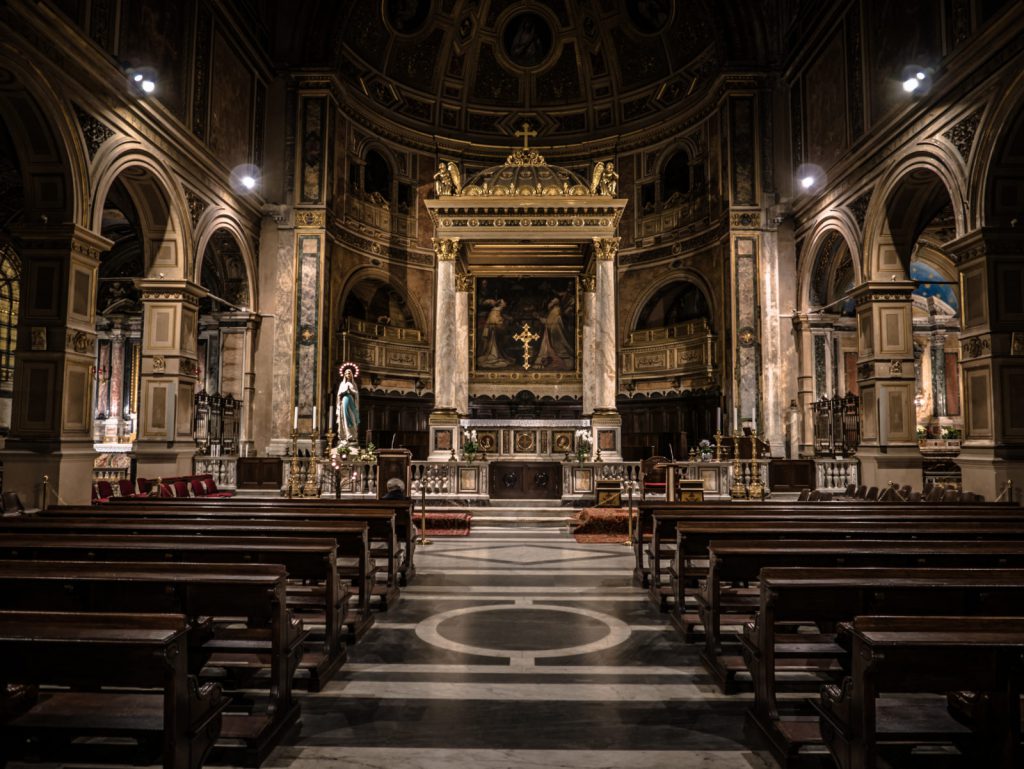
Published October 25, 2018
The U.S. Department of Justice has opened an investigation of several Pennsylvania dioceses pertaining to the sexual abuse of minors, including the trafficking of minors across state lines for the purpose of abuse. A U.S. Attorney in New York has subpoenaed the Diocese of Buffalo as part of an investigation of similar offenses. The attorney general for the District of Columbia has opened a civil investigation to see whether the Archdiocese of Washington is liable, as a nonprofit institution, for its handling (or mishandling) of child sexual abuse.
And then there are the investigations that have been announced or are currently being conducted by attorneys general in New York, Illinois, Missouri, Nebraska, Maryland, New Jersey, Florida, New Mexico, Arkansas, Kentucky, Vermont, Virginia, and – it appears – California.
Notably, Louisiana’s attorney general is not conducting such an investigation on sensible grounds: “[T]here have been no criminal complaints made to the Louisiana Department of Justice. And smearing the Church and its clergy without specific complaints of criminal acts is irresponsible.” Still, Louisiana appears to be the exception that proves the rule.
Some Catholics will see these investigations as welcome news: a necessary, if painful, step towards accountability for bishops and priests who have betrayed their flocks. These investigations might finally bring justice to victims who have, in some cases, waited decades for it. They might also put to rest the nagging suspicion in the minds of so many Catholics who have learned the hard way not to take the bishops’ word that abusers have been properly dealt with.
There’s something to be said for such hopes, but there’s also reason for apprehension.
Even innocent priests and bishops will have reason to be anxious when ambitious prosecutors looking to make a name for themselves (and to prove their toughness to voters) start dredging through the past looking for something, anything, to pin on the Catholic Church. If the Pennsylvania Grand Jury Report was any indication, few new cases will result in criminal charges since most abusers are either dead or the statute of limitations has expired, or there’s simply not sufficient evidence to prove the charges.

When there’s no one to put on trial, no one who can be made to pay, the stink of scandal has a way of clinging to anyone in proximity, guilty or not.
There will be renewed calls in state legislatures to drop or extend statutes of limitations, as we’ve seen already in Pennsylvania. The Church’s resistance to such changes is inexplicable to many, Catholics and not, who can’t understand why the Church would profess concern for victims while at the same time opposing legal changes that might bring justice to the same.
But the cost of litigating large, protracted civil cases creates a huge incentive for dioceses to settle. In recent years, more than a dozen dioceses and archdioceses have filed for bankruptcy over abuse cases. The Archdiocese of Los Angeles alone paid out $660 million in 2007. Earlier this year, the Archdiocese of Minneapolis-St. Paul went through bankruptcy and still paid out $210 million.
There’s certainly no injustice in victims being awarded monetary damages for abuse they have suffered, the tens of millions being raked in by their lawyers notwithstanding. But justice has two sides and the fact is that the financial burden for these settlements doesn’t fall on the predator priests or the bishops who covered for them: the brunt of it falls on parishes and diocesan ministries and those who depend on them today and into the future.
Bishops who take seriously the Church’s obligation to seek justice for victims must also think seriously about what justice there is in making the next generation of Catholics pay the price for the sins and crimes of a past generation.
In coming months and years, more than one bishop is going to have to make some very hard choices balancing the demands of justice for victims with his duty to protect the patrimony of his flock. Losing that patrimony – hospitals, schools, charities, food banks, universities, to say nothing of church buildings and a thousand and one other ministries – or seeing it greatly diminished, would not be an occasion for joy. It would be a disaster, both for the Church and those she serves.
Of course, the greatest loss for the Church is not stuff (however conducive to the mission) but souls. Maybe the humiliation and suffering the Catholic Church in the United States is undergoing will bear fruit in the long run. Faith says that’s not too much to hope for. But it’s hard to see how good comes from this unless there is a renewed sense in the Church that what is at stake is the salvation of souls. I wish more bishops, more priests, and a whole lot more lay people were clear on that.
I have wondered many times in recent months how this latest round of scandals will affect the Church. Will Mass attendance decline? (Probably.) Will Millennial flight to the ranks of the “Nones” accelerate? (Maybe.) Will vocations decline? (I don’t know.)
Pope Francis has spoken of his desire for “a Church that is poor and for the poor.” Perhaps that’s where we’re headed in the United States, though not by the road anyone would have imagined. And perhaps, stripped of her worldly goods and cares, the Church in the United States will also look something more like what Pope Benedict XVI had in mind when he mused about the possibility a “smaller, purer” Church.
Perhaps that’s the Church of the New Evangelization we’ve been talking about for so long: not a Church that has prevailed, but one that has been brought low. Perhaps. I don’t know.
I do know that it has happened before.
*Image: The Miracles of Saint Francis Xavier by Peter Paul Rubens, 1617-18 [Kunsthistorisches Museum, Vienna]. Rubens, a devout Catholic, was a master of Baroque art and a champion of the Counter-Reformation.
© 2018 The Catholic Thing.
Stephen P. White is a fellow in Catholic Studies at the Ethics and Public Policy Center in Washington.











